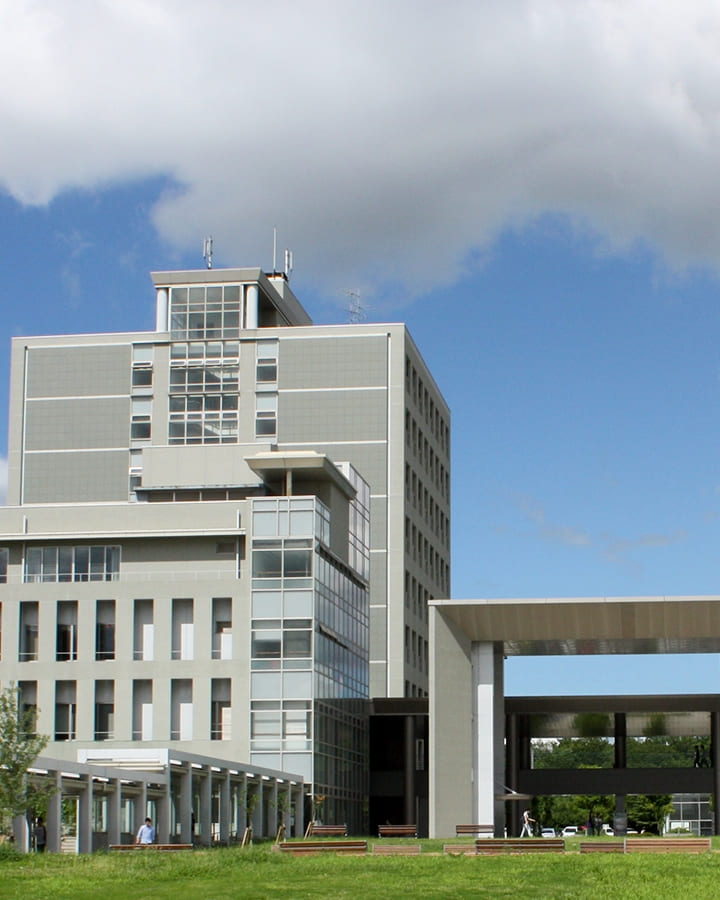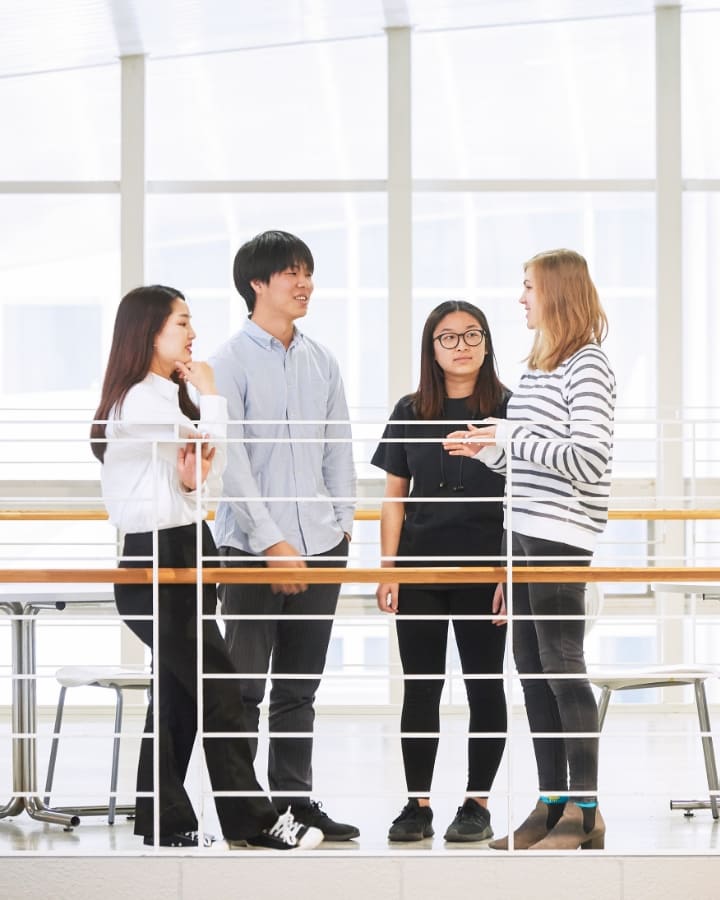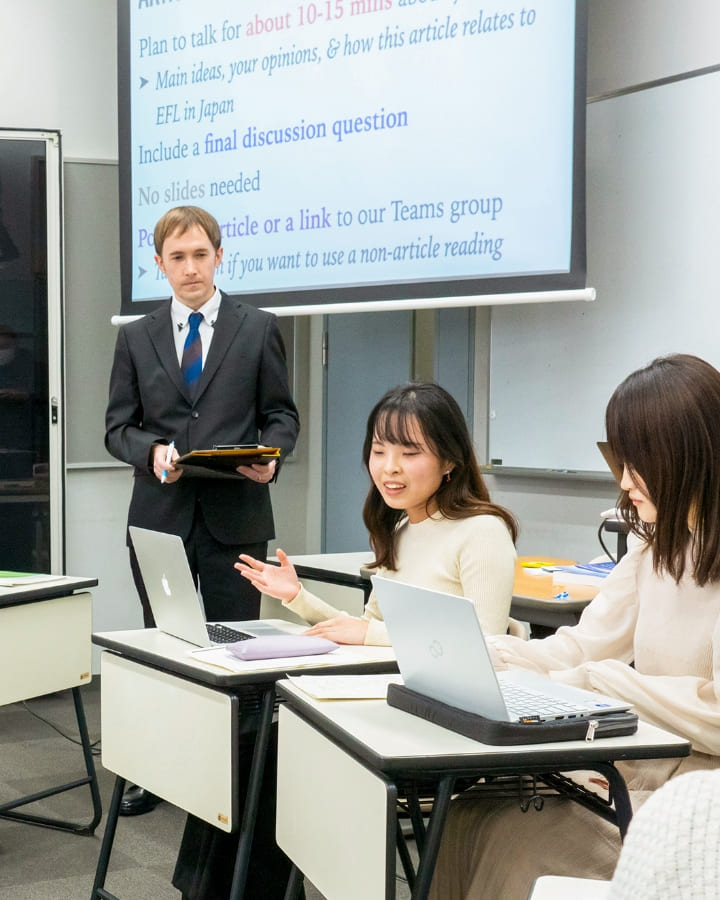The School of Japanese Studies consists of two departments: the Department of Japanese Language & Literature and the Department of Japanese History & Culture. The School of Japanese Studies is a school of humanities and social sciences that focuses on Japan as a social and cultural framework within which we live as members of, and as the object of our academic research. The school's objective is to explore the fundamental principles of cultural creation and their concrete manifestations in the context of the changes and developments over a long period of time, with the aim of finding valuable future perspectives. As cultural exchange in the international community progresses, problems that need to be solved on a global scale are appearing one after another. In this context, there is a growing need for local cultural creation activities that are grounded in the local community. This is the basis for people to take the initiative.
To achieve the above-mentioned objective, the School of Japanese Studies is looking for the following students.
Department of Japanese Language & Literature
Three Components of Academic Ability
- Knowledge and skills: Those who have a broad knowledge and interest in language and literature necessary to understand Japanese culture in the world.
- Thinking, judgment, expression, etc.: Those who can think and judge logically about the state of society and culture, and express their judgments to others.
- Attitude to learn proactively and collaboratively with diverse people: Those who are willing to be actively involved in the community and society, and who have the attitude to communicate this to the world.
Department of Japanese History & Culture
Three Components of Academic Ability
- Knowledge and skills: Those who have broad knowledge and interest in language and society necessary to understand Japanese culture in the world.
- Thinking, judgment, expression, etc.: Those who can think and judge logically about the state of society and culture, and express their judgment to others.
- Attitude to learn proactively and collaboratively with diverse people: Those who are willing to be actively involved in the community and society, and who have the attitude to communicate this to the world.





